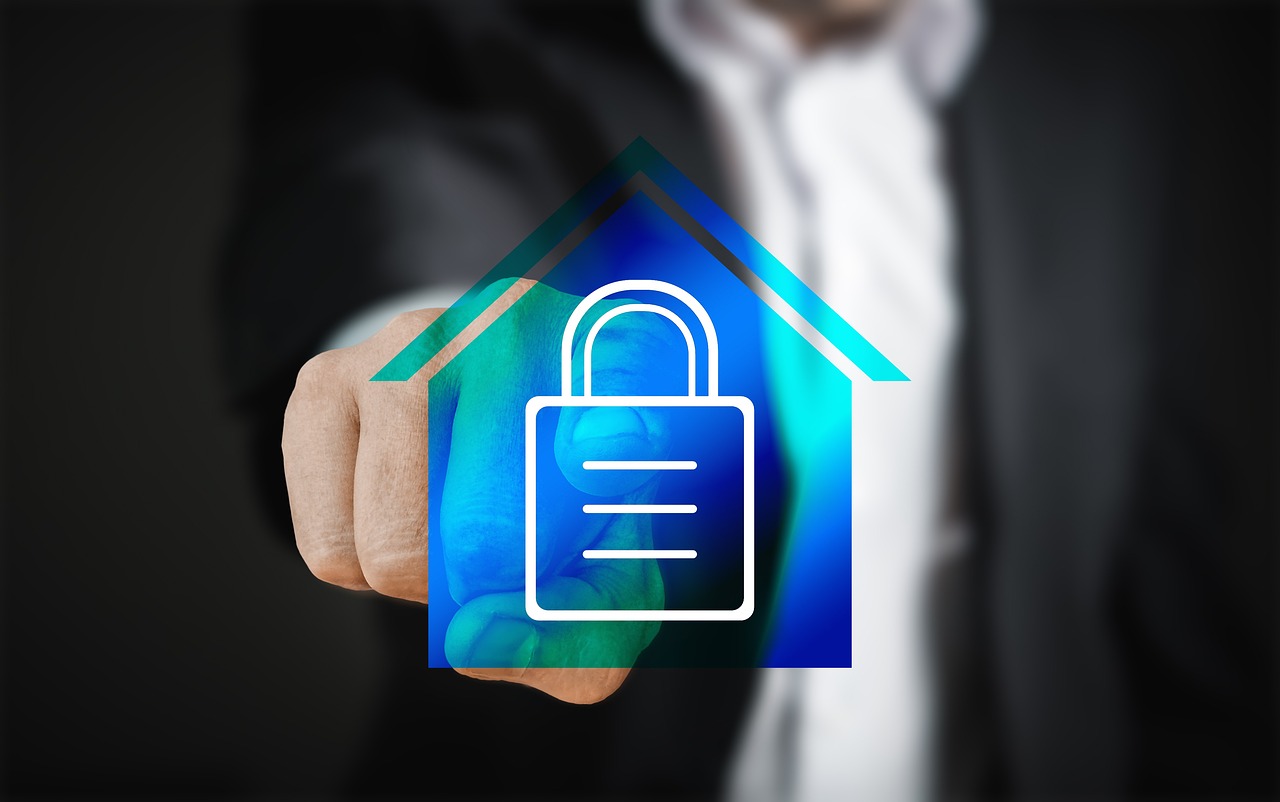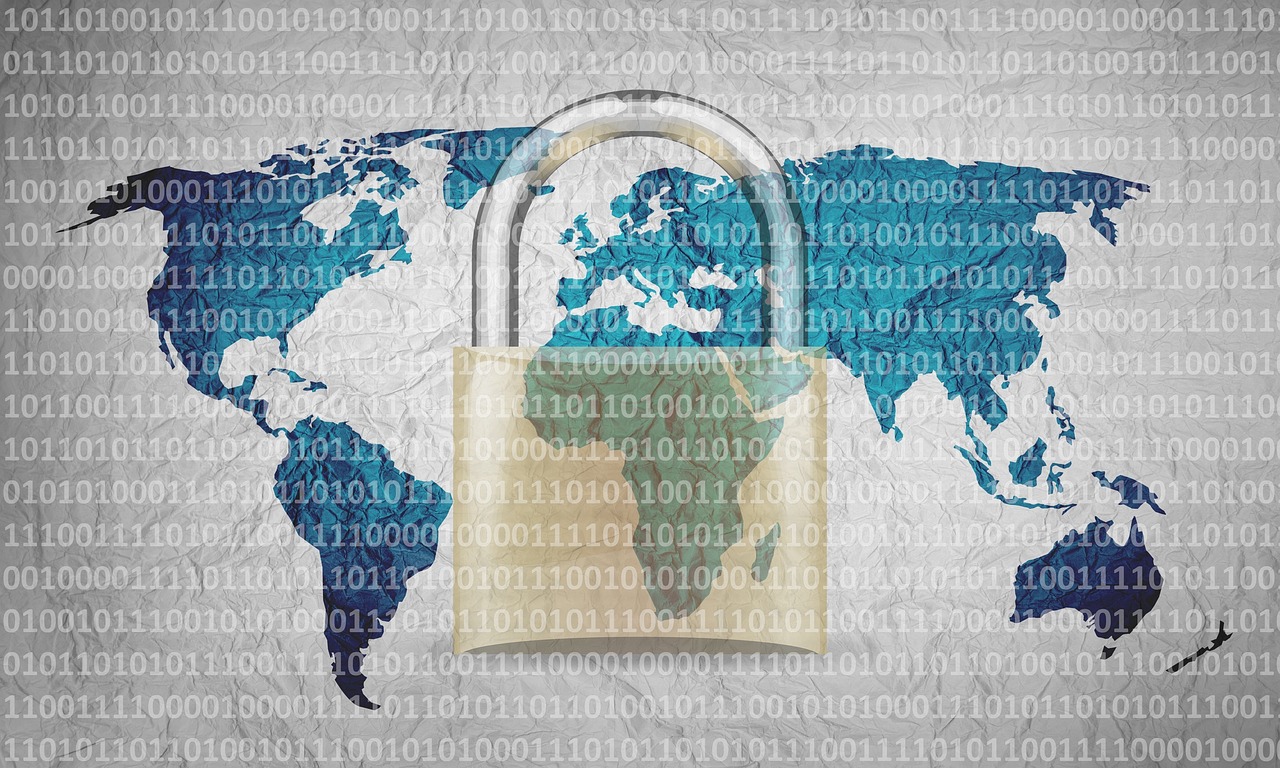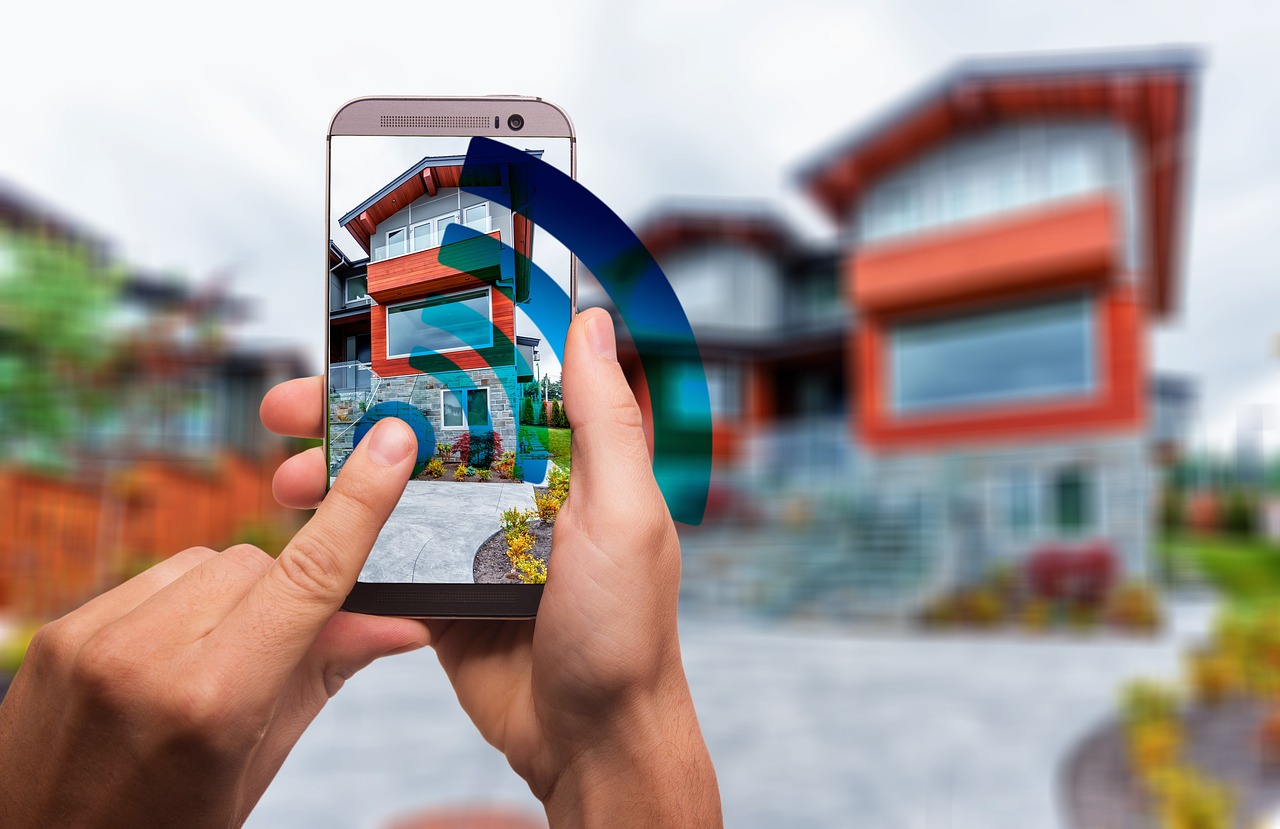DIY vs. Professional: Choosing a Home Security System
In today's world, ensuring the safety of your home has never been more crucial. With rising crime rates and increasing concerns about personal safety, homeowners are left with a pressing question: should they opt for a DIY security system or hire a professional security service? This article aims to delve into the pros and cons of both options, providing you with the insights needed to make an informed decision that aligns with your specific needs, budget, and preferences.
DIY security systems have surged in popularity, and for good reason. These systems offer a level of flexibility and cost-effectiveness that appeals to many homeowners. Imagine being able to customize your security setup to fit your unique lifestyle—this is the charm of DIY systems. Typically, a DIY system consists of components such as cameras, alarms, and motion sensors that you can purchase and install yourself. The beauty lies in the control you maintain over your security measures. You can choose the equipment that best suits your needs without being tied to a long-term contract or expensive service fees.
On the flip side, professional security installation comes with a host of benefits that can be hard to overlook. When you hire experts, you gain access to their expert knowledge and ongoing support. Professional systems often utilize advanced technology, which can offer features that DIY systems might lack. Think about it: would you rather rely on your own research or have a seasoned professional design your security system? Additionally, many professionals provide ongoing monitoring services, ensuring that your home is protected 24/7. This peace of mind can be invaluable, especially for those who travel frequently or have busy lifestyles.
When considering a DIY security system, understanding the costs involved is crucial. Initially, you might think you're saving a bundle, but it’s essential to break down the expenses. Here’s a quick overview:
| Cost Type | Estimated Amount |
|---|---|
| Initial Equipment Cost | $200 - $800 |
| Ongoing Monthly Fees | $0 - $50 |
| Potential Savings Compared to Professional | Up to 50% |
While the initial investment might be lower than hiring professionals, it’s important to consider the long-term costs associated with maintenance and upgrades.
Let’s dive into the various equipment options available for DIY systems. You’ll find a range of products from basic cameras to sophisticated alarm systems. The costs associated with these can vary significantly:
- Cameras: $50 - $300 each
- Alarm Systems: $100 - $500
- Installation Tools: $50 - $150 (if needed)
By understanding these costs, homeowners can budget effectively and avoid surprises down the line.
However, it’s not just the initial setup that matters. Homeowners must also consider ongoing maintenance costs. For example, software updates may be necessary to keep your system secure. Additionally, battery replacements and system upgrades can add up over time. It’s vital to factor these potential expenses into your overall budget.
When it comes to professional installation, the financial implications can vary widely. Here’s what you can expect:
- Installation Fees: Typically range from $100 to $300
- Monthly Monitoring Charges: Can be anywhere from $20 to $60
- Long-Term Savings: Often seen in reduced insurance premiums and fewer theft incidents
While the upfront costs may seem higher, the long-term benefits can outweigh these initial investments.
Ultimately, understanding your personal security needs is essential. Take a moment to consider your home, lifestyle, and specific threats you might face. Are you in a neighborhood with high crime rates? Do you travel frequently? These factors will guide you in determining whether a DIY system or professional installation is the right fit for you.
Identifying vulnerabilities in your home is the first step to effective security. Assess your entry points, such as doors and windows, and consider the safety of your neighborhood. Are there areas that seem particularly vulnerable? By tailoring your security system to address these risks, you can significantly enhance your home’s safety.
Lastly, your lifestyle plays a significant role in determining your security needs. For example, if you have a busy work schedule or travel often, you might benefit from a professional system that offers 24/7 monitoring. On the other hand, if you’re a hands-on individual who enjoys DIY projects, a DIY system could be a rewarding challenge.
Q: Can I upgrade a DIY system later on?
A: Yes! Most DIY systems are modular, allowing you to add or upgrade components as needed.
Q: How much does professional monitoring cost?
A: Professional monitoring typically ranges from $20 to $60 per month, depending on the services offered.
Q: Is DIY installation difficult?
A: It varies by system, but many DIY systems are designed for easy installation, often requiring no special tools.

Understanding DIY Security Systems
In today's world, where safety is a priority for many, DIY security systems have emerged as a popular choice among homeowners. These systems provide a unique blend of flexibility and cost-effectiveness that appeals to those who prefer a hands-on approach to securing their homes. So, how exactly do these systems work, and what makes them stand out?
A DIY security system typically consists of several key components including cameras, motion detectors, alarms, and a central control panel. Unlike traditional systems that require professional installation, DIY systems allow homeowners to set up their security measures at their own pace and according to their specific needs. This can be a game-changer for those who enjoy taking control of their home security without the hassle of scheduling appointments or paying hefty installation fees.
One of the most significant advantages of DIY systems is their affordability. Homeowners can often save a considerable amount of money by opting for a DIY approach. Not only do they avoid installation costs, but many DIY systems also come with no monthly monitoring fees. This means that once you've made the initial investment in equipment, ongoing costs can be minimal. Imagine being able to monitor your property without the burden of monthly bills—sounds appealing, right?
Moreover, the flexibility of DIY systems cannot be overstated. Homeowners can customize their security setup based on their unique needs. For instance, if you live in a quiet neighborhood, you might choose a simpler system with fewer cameras, whereas someone in a busier area might opt for a more comprehensive setup. This adaptability allows individuals to create a security solution that fits their lifestyle and budget.
However, it's essential to recognize that while DIY systems offer numerous benefits, they also come with certain challenges. Since the homeowner is responsible for installation and maintenance, there can be a learning curve involved. For those who are not tech-savvy, setting up a DIY system might feel overwhelming. But fear not! Many manufacturers provide user-friendly guides and online tutorials to simplify the process. In fact, a recent survey revealed that nearly 80% of DIY users felt confident in managing their systems after initial setup.
In summary, DIY security systems are a fantastic option for homeowners looking to take control of their security without breaking the bank. They offer flexibility, customization, and the potential for long-term savings. However, it's crucial to weigh the pros and cons carefully and assess your comfort level with technology before diving in. After all, a secure home is a happy home, and finding the right security solution is a step in the right direction!

Benefits of Professional Security Installation
When it comes to securing your home, opting for professional security installation can feel like a safety blanket, providing you with peace of mind that DIY systems often can't match. One of the most significant advantages is the expert knowledge that professionals bring to the table. Imagine trying to assemble a complicated puzzle without knowing what the final picture looks like; that's how it can feel for some homeowners when setting up a DIY system. Professionals not only know how to put the pieces together but also understand the best practices for optimizing your security setup.
Additionally, professional installations often come with advanced technology that may not be readily available to the average consumer. Many companies offer state-of-the-art equipment, such as high-definition cameras, smart sensors, and integrated alarm systems that can be managed through your smartphone. This technology ensures that you’re not just installing a basic security system but one that can adapt to your needs and provide real-time alerts. Think of it as upgrading from a flip phone to the latest smartphone; the difference in functionality is remarkable.
Another compelling reason to consider professional installation is the ongoing monitoring services that many companies provide. These services act like a vigilant guardian, watching over your home 24/7. If an alarm goes off, trained professionals can quickly assess the situation and alert authorities if necessary. This level of monitoring can be a game-changer, especially for those who travel frequently or have busy lifestyles. You can rest easy knowing that there’s someone looking out for you, even when you can’t be there yourself.
Moreover, the peace of mind that comes with professional assistance is invaluable. When you know that experts are handling your security, you can focus on your daily life without the nagging worry of whether your system is functioning correctly. It’s like having a personal safety net; if something goes wrong, you have a team of professionals ready to jump in and assist. This peace of mind can be particularly beneficial for families with children or elderly members who might be more vulnerable to security threats.
However, let’s not forget the customer support aspect. With professional installation, you often gain access to comprehensive customer service. Whether you have questions about your system or need assistance troubleshooting an issue, professional companies typically offer dedicated support lines. This can save you a lot of time and frustration compared to navigating DIY forums or help articles alone.
In summary, while DIY systems offer flexibility and cost savings, the benefits of professional security installation are hard to overlook. From expert knowledge and advanced technology to ongoing monitoring and customer support, professionals provide a comprehensive package that can enhance your home security significantly. When considering your options, think about what you value most in a security system. If peace of mind and expert assistance are at the top of your list, a professional installation might be the way to go.
- What is the average cost of professional security installation? The cost can vary widely based on the system and services you choose, but it typically ranges from $100 to $300 for installation, with ongoing monitoring fees around $30 to $50 per month.
- Can I upgrade my DIY system to a professional one later? Yes, many DIY systems can be integrated with professional monitoring services, allowing you to transition smoothly.
- How long does professional installation take? Generally, installation can take anywhere from a few hours to a full day, depending on the complexity of the system.
- What happens if my alarm goes off? In the event of an alarm activation, the monitoring service will assess the situation and contact local authorities if necessary.

Cost Considerations for DIY Systems
When it comes to choosing a DIY home security system, understanding the costs involved is crucial. Many homeowners are drawn to the idea of setting up their own security system due to the potential for savings and the flexibility it offers. However, it’s essential to look beyond the initial price tag and consider both the upfront expenses and ongoing costs. After all, what might seem like a bargain at first could lead to unexpected expenses down the line!
Initially, you’ll find that DIY systems typically have lower setup costs compared to hiring professionals. You can purchase equipment online or at local stores, often at competitive prices. The key components usually include:
- Cameras: Ranging from $50 to $300, depending on features like resolution and night vision.
- Alarms: Basic alarm systems can start at around $30, while more advanced setups can go over $200.
- Installation Tools: If you’re handy, you might not need to spend much, but tools can add another $50 to $100 if you need to buy them.
So, what do these figures mean for your budget? Let’s break it down a bit further. Here’s a simple table to illustrate the potential costs:
| Component | Price Range |
|---|---|
| Cameras | $50 - $300 |
| Alarms | $30 - $200 |
| Installation Tools | $50 - $100 |
| Total Estimated Initial Cost | $130 - $600+ |
However, it’s not just about the initial investment. Homeowners should also consider ongoing maintenance costs. Yes, you might save money on installation, but what about the upkeep? Here are some common expenses to keep in mind:
- Software Updates: Many systems require regular updates, which can sometimes come with fees.
- Battery Replacements: Depending on the equipment, batteries might need replacing every few months, costing anywhere from $10 to $50.
- System Upgrades: As technology advances, you may want to upgrade your system, which could be an additional expense.
In summary, while DIY security systems can be appealing due to their lower initial costs and flexibility, it’s essential to factor in both the setup and ongoing expenses. A well-thought-out budget will help ensure that you’re not caught off guard by hidden costs. Remember, saving a few bucks upfront could lead to more significant expenses later on. So, weigh your options carefully and choose a system that suits not just your wallet but your peace of mind!

Equipment and Setup Costs
This article explores the pros and cons of DIY and professional home security systems, helping homeowners make informed decisions based on their needs, budget, and preferences.
DIY security systems offer flexibility and cost-effectiveness. This section discusses how these systems work, their components, and the advantages they provide for homeowners seeking a hands-on approach to security.
Professional security installation guarantees expert knowledge and support. This section outlines the key benefits, including advanced technology, ongoing monitoring services, and peace of mind that comes with professional assistance.
When opting for a DIY security system, understanding the costs involved is crucial. This section breaks down initial expenses, ongoing costs, and potential savings compared to professional installation.
When diving into the world of DIY security systems, one of the first things to consider is the . These costs can vary widely based on the components you choose and the complexity of your installation. To give you a clearer picture, let's break down some of the essential items you might need:
| Equipment | Average Cost |
|---|---|
| Security Cameras | $50 - $300 each |
| Alarm System | $100 - $500 |
| Motion Sensors | $30 - $100 each |
| Installation Tools | $20 - $100 |
As you can see, the initial investment can add up quickly. However, the beauty of DIY systems lies in their flexibility. You can start small and gradually expand your setup as your budget allows. For instance, you might begin with just a couple of security cameras and an alarm system, and then add motion sensors or smart locks later on. This modular approach allows you to customize your security system according to your needs without breaking the bank.
Additionally, many DIY systems come with user-friendly installation guides and videos, making it easier for even the most novice DIYers to set up their security systems without needing professional help. This not only saves you money on installation fees but also gives you a sense of accomplishment. Think of it like putting together a puzzle; the more pieces you add, the clearer the picture becomes!
However, it's essential to remember that while DIY systems can save you money upfront, there may be hidden costs down the line. For instance, if you decide to integrate smart home technology, you might need to purchase additional equipment or software. Therefore, it’s wise to do some research and plan your budget accordingly.
Understanding personal security needs is essential. This section guides readers through assessing their homes, lifestyle, and specific threats to determine the most suitable security solution.
Identifying vulnerabilities in your home is the first step to effective security. This section provides tips on evaluating entry points, neighborhood safety, and potential risks to tailor your security system.
Lifestyle plays a significant role in determining security needs. This section discusses how factors like travel frequency, family size, and work hours influence the choice between DIY and professional systems.
- What are the main advantages of DIY security systems? DIY systems are often more cost-effective and customizable, allowing homeowners to choose components that fit their specific needs.
- Are professional security systems worth the investment? Yes, professional systems provide expert installation and ongoing monitoring, which can offer peace of mind, especially for those unfamiliar with security technology.
- Can I start with a DIY system and switch to professional later? Absolutely! Many homeowners start with DIY systems and later opt for professional monitoring or installation as their needs evolve.

Maintenance and Upkeep Expenses
When you decide to go the DIY route for your home security system, it’s essential to keep in mind that the initial investment is just the tip of the iceberg. While the upfront costs might seem appealing, can sneak up on you if you're not prepared. Just like owning a car, where you have to budget for gas, oil changes, and repairs, your DIY security system requires ongoing attention and financial commitment.
First off, let's talk about software updates. Many DIY systems rely on apps and software to function optimally. These updates are crucial for maintaining security features and fixing vulnerabilities. Depending on the system, you might need to pay for premium updates, which can add to your overall costs. It’s like keeping your smartphone up to date—if you ignore those notifications, you might miss out on essential security patches!
Next, consider battery replacements. Many DIY security devices, such as cameras and sensors, run on batteries. Over time, these batteries will need replacing, which can become a recurring expense. For example, if you have multiple cameras, and each requires a battery change every six months, you might find yourself spending more than you anticipated. Keeping a stock of batteries on hand is wise, but it also means another expense to factor into your budget.
Additionally, as technology evolves, you might find that your system requires upgrades. Whether it's a new camera with better resolution or an updated hub that connects all your devices, these upgrades can be significant. It’s like renovating a room in your house; you start with a small change, and suddenly you’re redoing the entire space. Therefore, it’s crucial to assess not just the initial costs but also the long-term expenses associated with maintaining your system.
To give you a clearer picture, here’s a quick breakdown of potential maintenance costs you might encounter with a DIY security system:
| Expense Type | Estimated Cost | Frequency |
|---|---|---|
| Software Updates | $50 - $100 | Annually |
| Battery Replacements | $20 - $50 | Every 6 months |
| Equipment Upgrades | $100 - $500 | Every 2-3 years |
| Miscellaneous Repairs | $50 - $200 | As needed |
As you can see, while DIY systems can save you money upfront, the ongoing maintenance can add up quickly. It’s vital to weigh these costs against the benefits of having a system that you can manage yourself. If you find yourself frequently replacing batteries or paying for software updates, you might want to reconsider whether a DIY system is the best fit for your lifestyle. In the end, it’s all about balancing cost and convenience to ensure your home remains secure without breaking the bank.
- What are the main differences between DIY and professional security systems? DIY systems offer flexibility and hands-on control, while professional systems provide expert installation and ongoing monitoring.
- How much can I expect to spend on maintaining a DIY security system? Maintenance costs can vary, but you should budget for software updates, battery replacements, and potential equipment upgrades.
- Is it worth investing in a professional installation? If you prefer peace of mind and expert assistance, professional installation might be worth the investment.
- Can I switch from a DIY system to a professional one later? Yes, many homeowners start with a DIY system and later upgrade to professional monitoring as their needs change.

Assessing Professional Installation Costs
When it comes to securing your home, the choice between DIY and professional installation often hinges on costs. Understanding the financial implications of hiring professionals is essential for homeowners who want to ensure safety without breaking the bank. Professional installation typically involves several components that contribute to the overall cost, and being aware of these can help you make an informed decision.
First and foremost, you have the installation fees. These fees can vary widely based on the complexity of the system you choose and the company you hire. For instance, basic systems might cost less to install, while advanced security setups with multiple cameras and sensors could significantly raise your installation costs. On average, you might expect to pay anywhere from $100 to $500 for installation, depending on the specifics of your system.
In addition to installation fees, many professional security services offer monthly monitoring charges. This is where the costs can really add up. Monthly fees for monitoring services typically range from $15 to $60, depending on the level of service you choose. Some companies provide basic monitoring, while others offer advanced features like mobile alerts, video surveillance, and emergency response services. It's crucial to evaluate what you need and how much you're willing to spend on ongoing monitoring.
Now, let's talk about long-term savings. While the initial costs of professional installation might seem steep, it's important to consider the potential savings in the long run. For example, many insurance companies offer discounts for homes equipped with professionally monitored security systems. This can help offset some of your monthly monitoring fees. Additionally, professional systems often come with warranties and support, which can save you money on repairs and replacements down the line.
To give you a clearer picture, here’s a simple breakdown of potential costs associated with professional installation:
| Cost Type | Estimated Range |
|---|---|
| Installation Fees | $100 - $500 |
| Monthly Monitoring Charges | $15 - $60 |
| Potential Insurance Discounts | Varies by insurer |
In conclusion, while professional installation may require a more significant upfront investment, the peace of mind and comprehensive support it offers can be invaluable. It's essential to weigh these costs against your personal security needs and preferences. After all, investing in your home’s security is not just about the initial price tag; it's about ensuring you have a safe and secure environment for you and your loved ones.
- What are the advantages of professional installation over DIY? Professional installation often includes expert advice, advanced technology, and ongoing support, which can provide a higher level of security.
- Can I save money with DIY systems? Yes, DIY systems can be more cost-effective initially, but consider potential maintenance and upgrade costs over time.
- Are there hidden fees with professional installations? Always ask for a comprehensive quote to ensure there are no unexpected fees for installation or monitoring.
- How do I choose the right security system for my home? Assess your home’s vulnerabilities, your lifestyle, and your budget to determine the best solution for your needs.

Evaluating Your Security Needs
Understanding your personal security needs is not just a good idea; it's a crucial step in safeguarding your home and loved ones. Think of it like tailoring a suit; you wouldn't buy off the rack without considering your unique measurements, right? The same goes for security systems. Each home is different, and so are the threats that may lurk around the corner. So, how do you determine what you really need?
Start by taking a good look at your home and lifestyle. Are you in a bustling neighborhood with a low crime rate, or do you live in a more secluded area where security might be a bigger concern? Your environment plays a significant role in shaping your security requirements. For instance, if you live in a high-crime area, you might want to invest in more robust security measures, whereas a quiet suburb might allow for a more relaxed approach.
Next, consider your daily routine. Are you often traveling for work or leisure? If you find yourself away from home frequently, a system with remote monitoring capabilities could be invaluable. Imagine being on a beach in Hawaii, sipping a piña colada, and knowing that you can check on your home in real-time through your smartphone. How great would that feel? On the other hand, if you work from home or have a stay-at-home family member, you might not need as extensive a system since someone is always around to keep an eye on things.
Another important aspect to evaluate is the number of people living in your home. A larger family may require more comprehensive coverage, including multiple cameras and sensors, while a single occupant might only need a basic setup. Additionally, consider the age and mobility of your family members. For example, if you have young children or elderly parents, ensuring their safety might take precedence, influencing the type of security system you choose.
Once you've assessed your home and lifestyle, it's time to identify specific vulnerabilities. Walk around your property and take note of potential weak points. Are there easily accessible windows? Is the front door sturdy? What about the garage? These are all crucial areas that need attention. You might even want to create a simple table to help you visualize these vulnerabilities:
| Vulnerable Area | Potential Risk | Recommended Action |
|---|---|---|
| Front Door | Easy access for intruders | Install a deadbolt and security camera |
| Windows | Break-ins through unlocked windows | Use window locks and sensors |
| Garage | Valuables left unsecured | Install motion sensors and secure the door |
By identifying these vulnerabilities, you can tailor your security system to address the specific risks your home faces. It’s not just about having a security system; it’s about having the right one for your unique situation. Remember, the goal is to create a safe haven for you and your loved ones, and understanding your security needs is the first step in achieving that peace of mind.
- What is the best type of security system for my home? The best system depends on your specific needs, vulnerabilities, and lifestyle. Assess your situation to determine the right fit.
- How often should I reassess my security needs? It's wise to reassess your security needs annually or whenever you experience significant life changes, such as moving or changes in family size.
- Can I upgrade my DIY system later? Yes, many DIY systems are modular, allowing you to add components as your needs change.
- Is professional monitoring worth it? Professional monitoring can provide peace of mind, especially if you're frequently away from home.

Analyzing Home Vulnerabilities
When it comes to fortifying your home, the first step is to analyze its vulnerabilities. Think of your home as a fortress; every fortress has weak points that can be exploited. By identifying these vulnerabilities, you can tailor your security system to address specific risks. Start with a thorough examination of your entry points. Are your doors solid and equipped with reliable locks? Do your windows have proper latches? It's essential to assess whether these points of entry are secure enough to deter potential intruders.
Next, consider the surroundings of your home. Is your property well-lit? A dark exterior can be an open invitation for unwanted guests. Installing motion sensor lights can be an effective deterrent, making it harder for intruders to approach unnoticed. Additionally, take a look at your landscaping. Overgrown bushes or trees can provide cover for someone trying to break in. Keeping your yard tidy and well-maintained not only enhances your home’s curb appeal but also minimizes hiding spots for potential burglars.
Another crucial aspect is to evaluate your neighborhood's safety. Are there recent crime reports in your area? Engaging with your neighbors can provide insights into local security issues. Consider joining or forming a neighborhood watch program; a community that looks out for one another can significantly enhance overall safety.
Don't forget about technology. In today's digital age, many vulnerabilities can stem from your home's smart devices. Ensure that your Wi-Fi network is secure, as hackers can exploit weak passwords to gain access to your security cameras or alarm systems. Regularly updating your passwords and using encryption can help protect your devices from cyber threats.
Lastly, consider potential threats specific to your lifestyle. If you travel frequently or work late hours, your home may be more vulnerable during those times. In such cases, a comprehensive security system with real-time monitoring and alerts can provide peace of mind. By understanding your home's unique vulnerabilities, you can take proactive steps to enhance your security, ensuring that your fortress remains impenetrable.
- What should I do if I identify vulnerabilities in my home?
Take immediate action to reinforce those areas, such as installing better locks or outdoor lighting.
- How often should I reassess my home security?
It's a good idea to evaluate your security at least once a year or after any significant changes to your home or neighborhood.
- Can I do a security assessment myself?
Absolutely! A personal assessment can be very effective, but consider consulting a professional for a more comprehensive evaluation.

Identifying Lifestyle Factors
When it comes to choosing the right home security system, understanding your lifestyle factors is absolutely essential. Your daily routine, family dynamics, and personal habits play a pivotal role in determining what type of security system will best suit your needs. For instance, if you travel frequently for work or leisure, you might require a system that offers remote monitoring capabilities, allowing you to keep an eye on your home from anywhere in the world. Imagine being able to check your security cameras from your phone while lounging on a beach—now that's peace of mind!
Additionally, consider the size of your family. A larger household may necessitate more comprehensive security measures, such as multiple cameras and alarms in various rooms. On the other hand, if you live alone or with just one other person, a simpler setup may suffice. It’s like choosing between a multi-course meal and a quick snack; both can be satisfying, but one might be better suited to your circumstances.
Moreover, think about your work hours. If you’re often away during the day, your home might be more vulnerable to break-ins. In this case, a professional monitoring service could be invaluable. They can alert you and the authorities in real-time if an alarm is triggered, providing an extra layer of protection while you’re out earning a living. Conversely, if you work from home or have flexible hours, you might feel comfortable with a DIY system that you can control yourself.
Another factor to consider is your neighborhood's safety. If you live in a low-crime area, you might not feel the need for extensive security measures. However, if your neighborhood has seen an uptick in crime, you’ll want to take proactive steps. Local crime statistics can help you gauge the level of risk you face:
| Neighborhood | Crime Rate | Recommended Security Level |
|---|---|---|
| Maple Grove | Low | Basic DIY System |
| Oakwood Heights | Moderate | Enhanced DIY or Professional |
| Pine Valley | High | Professional Monitoring |
Ultimately, the key is to tailor your security system to fit your unique lifestyle. By assessing your daily habits, family size, and neighborhood safety, you can make an informed decision that not only protects your home but also aligns with your way of living. Remember, a security system is not just a product; it’s a part of your home that should work seamlessly with your life.
- What is the best home security system for frequent travelers? A system with remote monitoring capabilities and professional monitoring services is recommended.
- Are DIY systems effective for larger families? Yes, but ensure you choose a system that allows for multiple cameras and alarms to cover all areas.
- How can I assess my neighborhood's safety? Look up local crime statistics, talk to neighbors, and consider joining community watch groups.
Frequently Asked Questions
-
What are the main differences between DIY and professional security systems?
DIY security systems allow you to install and manage your own security setup, giving you flexibility and often saving money. On the other hand, professional systems provide expert installation and ongoing monitoring, which can offer peace of mind but at a higher cost.
-
How much can I expect to spend on a DIY security system?
The cost of a DIY security system can vary widely based on the components you choose. Initial expenses typically range from a few hundred to a couple of thousand dollars, depending on equipment like cameras and alarms. Don't forget to factor in ongoing costs for software updates and battery replacements!
-
Are professional security installations worth the investment?
Absolutely! Professional installations often come with advanced technology and expert support. While the upfront costs may be higher, the long-term benefits, such as reliable monitoring and maintenance, can save you from potential losses due to security breaches.
-
How do I assess my home's security needs?
Start by analyzing your home’s vulnerabilities. Check entry points, consider neighborhood safety, and think about your lifestyle. If you travel often or have a larger family, you might need a more robust system, whether DIY or professional.
-
What should I consider when choosing between DIY and professional systems?
Think about your budget, how comfortable you are with technology, and how much time you can invest in setup and maintenance. If you prefer a hands-on approach and want to save money, a DIY system might be for you. If you want convenience and expert help, go for professional installation.
-
Can I upgrade a DIY security system later on?
Yes! One of the great things about DIY systems is their flexibility. You can easily add new components or upgrade existing ones as your needs change or as technology advances.
-
What are the ongoing costs associated with DIY security systems?
Ongoing costs can include software subscriptions, battery replacements, and the occasional equipment upgrade. It's essential to budget for these expenses to keep your system running smoothly.
-
How can I ensure my DIY security system is effective?
Regularly update your software, test your equipment, and stay informed about the latest security threats. Also, make sure to properly position your cameras and alarms for maximum coverage.



















